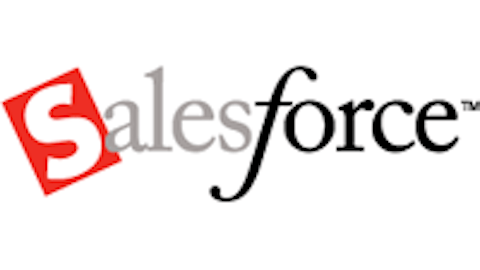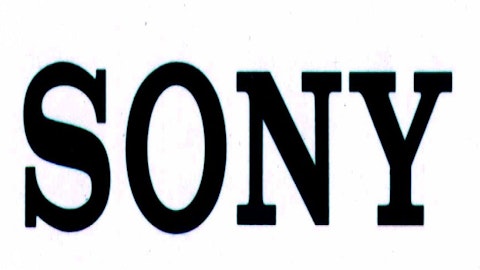When the computer became personal back in Microsoft Corporation (NASDAQ:MSFT)’s heydays, it was the one device that could do everything. However, with innovation being a central pillar in the tech industry, smartphones and tablets soon came along. Because they performed some of the key roles played by a PC, and not to mention offered more flexibility, PC sales descended faster than a meteorite from space; plunging 14% at the onset of 2013 — a slip not seen in ten years.
However, Intel Corporation (NASDAQ:INTC)’s soon to be released Haswell is offering hope for the PC. Pundits are arguing that a Haswell-Windows combination will revive the troubled sector. I couldn’t agree more. Nonetheless, this revival will not come in the fashion that most people imagine (better performing, energy efficient conventional PCs). It will be a bit different.

The PC resurgence argument holds. But, it will not take the form of conventional PCs but rather ultrabooks.
Better late than never
There is no arguing that Intel Corporation (NASDAQ:INTC) was slow to the mobile market; a mistake that gave processor designer ARM Holdings plc (ADR) (NASDAQ:ARMH) a clear lead. Now, however, Intel Corporation (NASDAQ:INTC) is circuitously hitting out that it is looking for a way to rope in tablet users back to PC. There are a lot of connotations on this in recent news.
Here are the key signs
1. Speculation of key handset makers eyeing Intel Corporation (NASDAQ:INTC)
Earlier in the year, speculation was rife that Apple Inc. (NASDAQ:AAPL) was planning to ditch Samsung chips in a bid for Intel Corporation (NASDAQ:INTC). As usual, the follow up on this was muddled with rumors and exchange between the ever so fervent Samsung and Apple Inc. (NASDAQ:AAPL) supporters. Nonetheless, the recurrent speculation of Apple ditching Samsung for Intel suggests that Intel could get an entry into mobile through Apple.
Interestingly, this is just half of the story.
Samsung is also reported to have eyed Intel, specifically for its upcoming tablet. This is according to CNET, which cites sources familiar with the matter.
While handset makers eyeing Intel could mean that they want to sharpen their competitive edge, it could also mean that they want to level the playing field just in case Intel-powered ultrabooks gnaw into their tablet market share.
2. Priority of energy efficiency in Haswell not a coincidence
Unlike Sandy Bridge, which later morphed into the 22nm Ivy Bridge, Haswell will be more emphatic on power efficiency and the enhancement of battery life. Intel argues that Haswell will present the greatest generation-to-generation battery life improvement in the company’s history. Haswell powered Ultrabooks are expected to run for a record nine hours without charging.
Power efficiency has always been a key selling point for tablets, mobile devices, and laptops. By offering an energy frugal chip, Intel positions itself at the heart of today’s tech consumer. I would personally go for an ultrabook that holds power longer than a tablet.
3. Market is ready for Intel
Perhaps one of the challenges that Intel would have faced earlier was that the market at large was not ready for any budding forms of innovation. The explosive popularity of devices donning the Apple logo could not at the time accommodate any newcomers.
Now, the playing field is somewhat leveled. The competition between Apple’s iPad and Android-powered tablets has provided some leeway for new players. According to IDC, iPad shipments are expected to make up 46% of the global tablet market share in 2013, down from 51% in 2012. Tablets running on Android, on other hand, are expected to increase from 42% last year to 49% this year.
As Jefferies analyst Peter Misek put it, the iPhone is now on the defensive against Samsung. It now seems that the iPhone’s dwindling market is also rubbing off to the iPad. As Apple fights these battles, room is being created for newer players.
One such player is Microsoft Corporation (NASDAQ:MSFT).
Despite the IDC saddling the decline in PC on Microsoft Corporation (NASDAQ:MSFT)’s ‘complicated’ Windows 8 operating system, I believe that the muted response to Windows 8 was just a mere speed bump. The consumer end of the market is in a transition phase. Windows 8, when combined with Intel’s Haswell, will create a force to reckon with, especially if you consider that fact that Windows now has a presence in mobile.
Windows 8 in Haswell powered ultrabooks will be instrumental in roping in Windows Phone users and creating a strong ecosystem for Windows. Considering that an ultrabook could also be passed by as a tablet (with a detachable keyboard), a superior Haswell powered ultrabook running on Windows 8 could bring in tablet users from other device makers.
Conclusion
If anything, these signs signal Intel’s bright prospects. Don’t be surprised if it uses Haswell to stage a formidable PC resurgence through ultrabooks.
The article The PC Revival Will Come, But Not as You Imagined originally appeared on Fool.com and is written by Lennox Yieke.
Lennox Yieke has no position in any stocks mentioned. The Motley Fool recommends Apple and Intel. The Motley Fool owns shares of Apple, Intel, and Microsoft. Lennox is a member of The Motley Fool Blog Network — entries represent the personal opinion of the blogger and are not formally edited.
Copyright © 1995 – 2013 The Motley Fool, LLC. All rights reserved. The Motley Fool has a disclosure policy.


